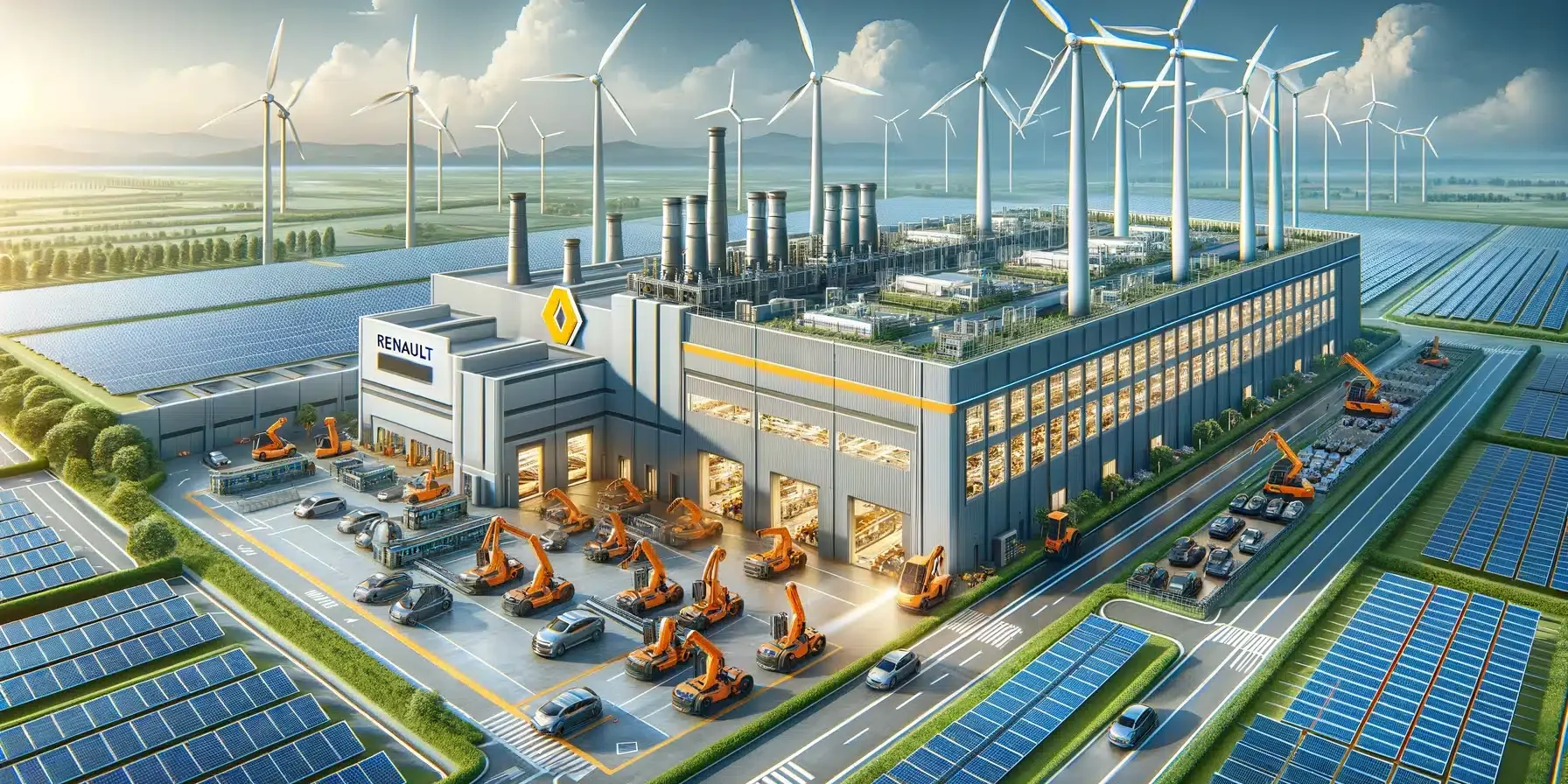Renault Commits to Sustainable Manufacturing Practices
Renault has reaffirmed its commitment to sustainability by announcing new initiatives aimed at reducing the environmental impact of its manufacturing processes. The company is investing in renewable energy sources and innovative technologies to create a more sustainable and eco-friendly production environment.
One of the key initiatives is the implementation of solar panels and wind turbines at Renault’s manufacturing plants. These renewable energy sources will significantly reduce the company’s reliance on fossil fuels and lower its carbon footprint. By harnessing the power of the sun and wind, Renault aims to make its production facilities more sustainable and environmentally friendly.
In addition to renewable energy, Renault is also focusing on improving energy efficiency within its factories. The company is upgrading its equipment and processes to reduce energy consumption and increase overall efficiency. This includes the use of advanced monitoring systems to track energy usage and identify areas for improvement. By optimizing its energy use, Renault is not only reducing its environmental impact but also lowering operational costs.
Renault is also committed to reducing waste and promoting recycling within its manufacturing processes. The company has implemented a comprehensive waste management system that prioritizes recycling and the reuse of materials. This approach not only minimizes waste sent to landfills but also conserves natural resources and reduces the environmental impact of production.
Another key aspect of Renault’s sustainability strategy is the development of eco-friendly materials for use in its vehicles. The company is researching and implementing new materials that are both sustainable and high-performing. This includes the use of recycled and bio-based materials, which reduce the environmental impact of vehicle production and contribute to a more sustainable supply chain.
Renault’s commitment to sustainability extends beyond its manufacturing processes. The company is also focused on promoting sustainable mobility solutions for its customers. This includes the development of electric and hybrid vehicles that produce lower emissions and are more energy-efficient. By offering a range of eco-friendly vehicles, Renault is helping to reduce the overall environmental impact of transportation and promote a more sustainable future.
These initiatives are part of Renault’s broader strategy to become a leader in sustainable mobility and manufacturing. By investing in renewable energy, energy efficiency, waste reduction, and eco-friendly materials, Renault is taking significant steps towards creating a more sustainable and environmentally responsible automotive industry. As the company continues to innovate and implement these initiatives, it is setting a strong example for other automakers to follow.
Renault’s commitment to sustainability is not only beneficial for the environment but also for its customers. By producing vehicles in a more sustainable manner, Renault is able to offer products that are both environmentally friendly and high-performing. This aligns with the growing consumer demand for eco-friendly products and demonstrates Renault’s dedication to meeting the needs of its customers while protecting the planet.
In conclusion, Renault’s efforts to promote sustainable manufacturing practices are a testament to the company’s commitment to environmental responsibility. By investing in renewable energy, improving energy efficiency, reducing waste, and developing eco-friendly materials, Renault is leading the way towards a more sustainable and eco-friendly automotive industry. These initiatives not only benefit the environment but also enhance the overall quality and performance of Renault’s vehicles, providing a better experience for its customers.







